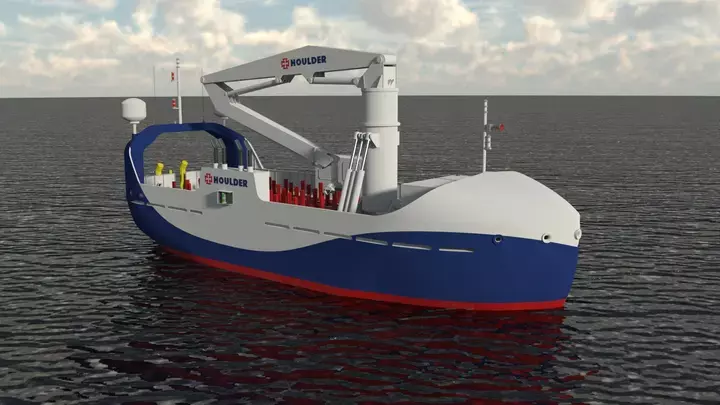HD Hyundai Revolutionizes Maritime Industry with AI-Powered Autonomous Navigation
The maritime industry is on the brink of a significant transformation, driven by the integration of Artificial Intelligence (AI) and autonomous navigation systems. At the helm of this innovation is HD Hyundai, a leading shipbuilding company that recently unveiled the world’s first merchant ship equipped with AI-enabled machinery monitoring and safety systems. This article explores the technical aspects, industry impact, and environmental benefits of HD Hyundai’s autonomous navigation system.
Technical Parameters of HD Hyundai’s Autonomous Navigation System
HD Hyundai’s autonomous navigation system leverages AI to monitor and manage core ship equipment in real-time. The system comprises two main components:
- HiCBM (Hyundai Intelligent Condition-Based Maintenance): This uses machine learning algorithms to detect anomalies and predict potential failures, enabling proactive maintenance and reducing downtime.
- HiCAMS (Hyundai Intelligent Condition-Based Monitoring and Safety): This AI-powered safety system detects and analyzes safety-related events, such as navigation equipment malfunctions and sensor failures, ensuring real-time monitoring and alerts for prompt action.
The system has been successfully demonstrated on an 8,000 TEU containership, showcasing its capabilities in switching control between multiple Remote Operation Centers (ROCs) on large vessels. It has received approval in principle (AIP) from the Korean Register (KR) and the Liberian International Ship & Corporate Registry (LISCR).
Impact on the Maritime Industry
The integration of AI-powered autonomous navigation systems offers several benefits to the maritime industry:
- Improved Safety: Real-time monitoring and alerts enable swift action to prevent accidents.
- Increased Efficiency: Predictive maintenance and proactive maintenance reduce downtime.
- Enhanced Operational Flexibility: Autonomous navigation enables remote control and switching between multiple ROCs.
- Reduced Costs: Minimized maintenance and repair costs, as well as reduced fuel consumption.
Environmental Benefits
The adoption of autonomous navigation systems also brings about positive environmental impacts:
- Reduced Fuel Consumption: Optimized navigation and reduced downtime lead to lower fuel consumption.
- Lower Emissions: Reduced fuel consumption results in lower greenhouse gas emissions.
- Improved Waste Management: Autonomous systems can optimize waste management and reduce waste disposal costs.
Summary
HD Hyundai’s AI-powered autonomous navigation system represents a significant leap forward for the maritime industry. With improved safety, increased efficiency, reduced costs, and positive environmental impacts, this technology is set to become a standard in the industry, having received approval in principle from KR and LISCR.
Conclusion
As the maritime industry continues to evolve, the integration of AI and autonomous navigation systems will play a pivotal role in shaping its future. Companies seeking to stay competitive should consider investing in such technologies to reap the benefits of enhanced operational efficiency, improved safety, and reduced environmental impact. By embracing these innovations, the maritime industry can navigate towards a smarter, greener, and more sustainable future.
List of Sources
- HD Hyundai Accelerates World’s First Level 3 Autonomous Navigation …
- HD Hyundai implements AI monitoring on autonomous vessel
- Press Releases | HD Hyundai
- Press Releases | HD Hyundai
- Videosoft Provides Real-Time Video Streaming for HD Hyundai’s Level 3 …
- HD Hyundai Begins Autonomous Demonstration with Larger Containership
- HD Hyundai Delivers Bulker Designed to Operate “Without Engineer”
- Hyundai bulker with AI engineer moves closer to autonomous shipping
- Hyundai Samho Heavy Industries(HSHI) Building the World”s First “AI …
- HD Hyundai wins approval for autonomous boxship


Leave a Reply